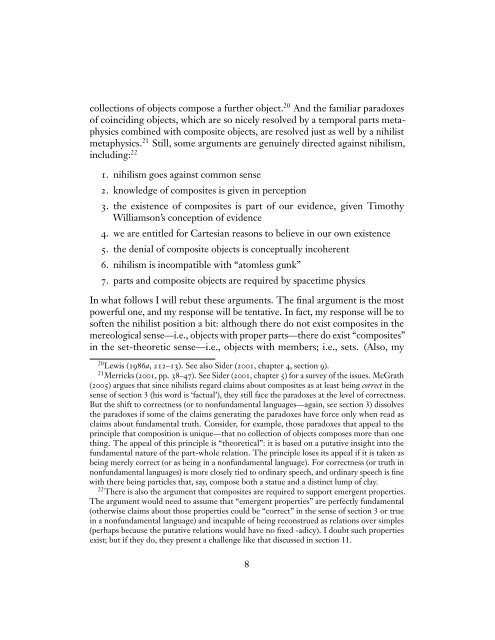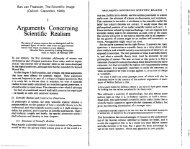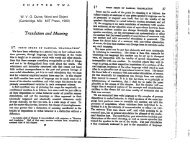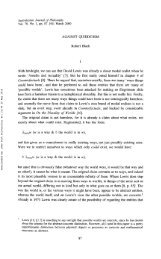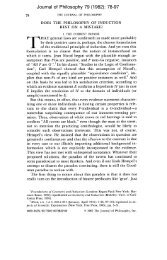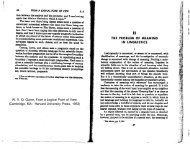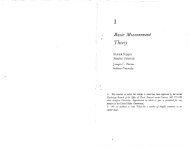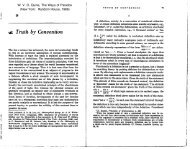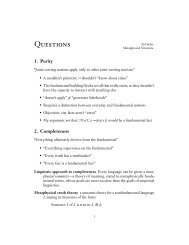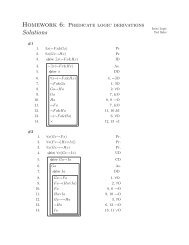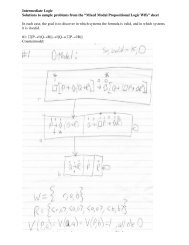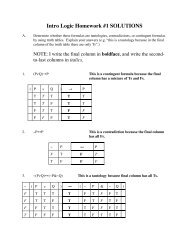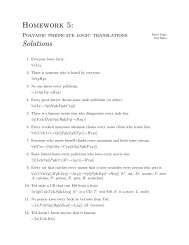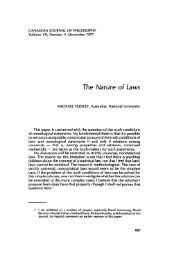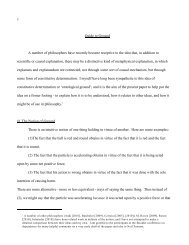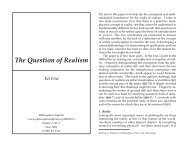Against Parthood∗ - Ted Sider
Against Parthood∗ - Ted Sider
Against Parthood∗ - Ted Sider
You also want an ePaper? Increase the reach of your titles
YUMPU automatically turns print PDFs into web optimized ePapers that Google loves.
collections of objects compose a further object. 20 And the familiar paradoxes<br />
of coinciding objects, which are so nicely resolved by a temporal parts metaphysics<br />
combined with composite objects, are resolved just as well by a nihilist<br />
metaphysics. 21 Still, some arguments are genuinely directed against nihilism,<br />
including: 22<br />
1. nihilism goes against common sense<br />
2. knowledge of composites is given in perception<br />
3. the existence of composites is part of our evidence, given Timothy<br />
Williamson’s conception of evidence<br />
4. we are entitled for Cartesian reasons to believe in our own existence<br />
5. the denial of composite objects is conceptually incoherent<br />
6. nihilism is incompatible with “atomless gunk”<br />
7. parts and composite objects are required by spacetime physics<br />
In what follows I will rebut these arguments. The final argument is the most<br />
powerful one, and my response will be tentative. In fact, my response will be to<br />
soften the nihilist position a bit: although there do not exist composites in the<br />
mereological sense—i.e., objects with proper parts—there do exist “composites”<br />
in the set-theoretic sense—i.e., objects with members; i.e., sets. (Also, my<br />
20 Lewis (1986a, 212–13). See also <strong>Sider</strong> (2001, chapter 4, section 9).<br />
21 Merricks (2001, pp. 38–47). See <strong>Sider</strong> (2001, chapter 5) for a survey of the issues. McGrath<br />
(2005) argues that since nihilists regard claims about composites as at least being correct in the<br />
sense of section 3 (his word is ‘factual’), they still face the paradoxes at the level of correctness.<br />
But the shift to correctness (or to nonfundamental languages—again, see section 3) dissolves<br />
the paradoxes if some of the claims generating the paradoxes have force only when read as<br />
claims about fundamental truth. Consider, for example, those paradoxes that appeal to the<br />
principle that composition is unique—that no collection of objects composes more than one<br />
thing. The appeal of this principle is “theoretical”: it is based on a putative insight into the<br />
fundamental nature of the part-whole relation. The principle loses its appeal if it is taken as<br />
being merely correct (or as being in a nonfundamental language). For correctness (or truth in<br />
nonfundamental languages) is more closely tied to ordinary speech, and ordinary speech is fine<br />
with there being particles that, say, compose both a statue and a distinct lump of clay.<br />
22 There is also the argument that composites are required to support emergent properties.<br />
The argument would need to assume that “emergent properties” are perfectly fundamental<br />
(otherwise claims about those properties could be “correct” in the sense of section 3 or true<br />
in a nonfundamental language) and incapable of being reconstrued as relations over simples<br />
(perhaps because the putative relations would have no fixed -adicy). I doubt such properties<br />
exist; but if they do, they present a challenge like that discussed in section 11.<br />
8


